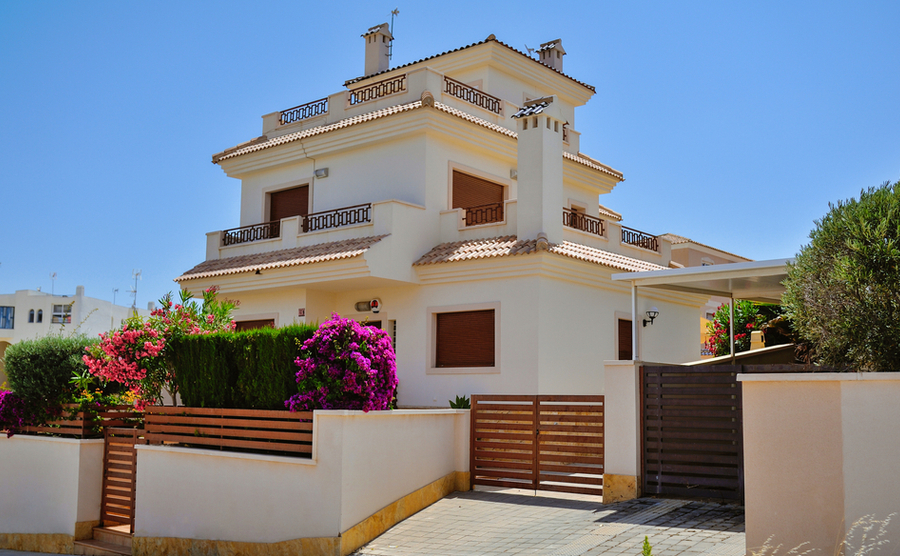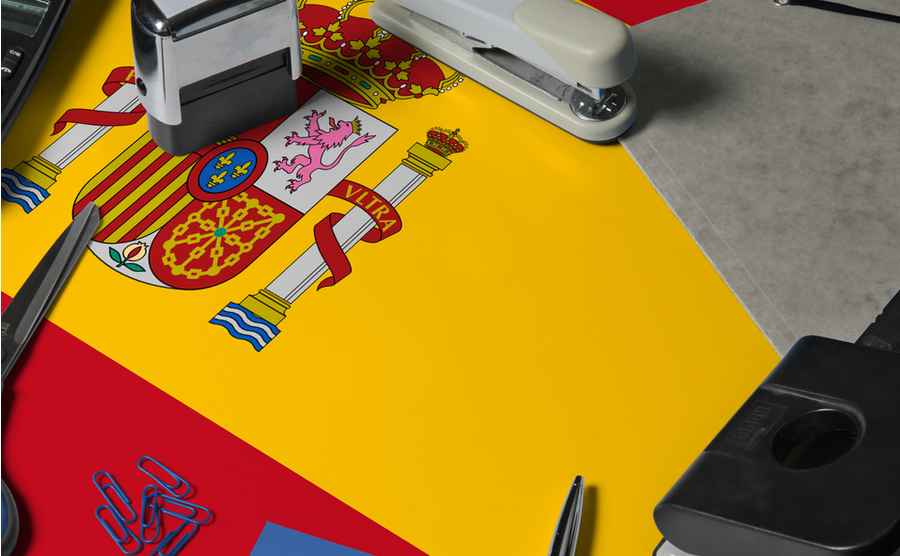The inheritance process in Spain can seem a little mind-boggling. We spoke to Emma Belgum of JLCA, who demystified the process and gave us tips for how to protect your assets in Spain after you have passed away.
Property hunting can be so fun. It is about choosing whether you would like to live in the countryside, the city, or the coast. It is about choosing between a new modern build or a traditional home. Those daydreams of dozing by a pool with a glass of Spanish wine in hand… But there are practical considerations too, and it is vital not to overlook these, and to instead be prepared for them, so that purchasing a property overseas is as painless as possible. Once you are the proud owner of a Spanish home, there are still things to keep on top of.
Recently, we spoke to Emma Belgum of JLCA about the un-jolly but necessary subject of the inheritance process in Spain. JLCA are “your lawyers in Spain.” With over twenty years of experience, they are a multilingual legal firm covering all areas of law, including property and inheritance.

While choosing a house in Spain is super exciting, it is important to think of the practical considerations to moving abroad too.
The inheritance process is vastly different to the UK. In Spain, when there is a death in the family and assets are involved, an inheritance or probate needs to be completed so that ownership can be passed on to the heirs.
Find homes in Spain via our property portal.
The essential steps to completing the inheritance process in Spain:
- Obtain a copy of the Death Certificate (legalised if outside of Spain).
- The Death Certificate is needed to obtain the Last Will and Life Insurance.
- If there is a will, then apply for a copy for the heirs.
- Inventory of Inherited Estate.
- Obtain NIE numbers for all heirs. The NIE number is the Spanish equivalent of a national insurance number.
- Sign Deed of Adjudication of Inheritance at the Notary in Spain.
- Payment and liquidation of inheritance taxes and Plus Valia.
- Unblocking and liquidation of funds existing in Bank entities.
- Inscription of the Property at the Property Registry in the name of the heirs.
- From here, the heirs will be able to proceed with whatever they choose to do with the property.
To help us get to grips with these steps, we asked Emma for more information on the inheritance process.
Our Q&A with Emma:
Q: If you are buying a property in Spain, when should you start thinking about the inheritance process?
A: We always recommend that when you buy a property in Spain, you make a Spanish will. Having a Spanish will makes the process considerably easier and more efficient. Additionally, it is cheaper to have a Spanish will than to have to process a will from the UK.
If as well as property, you have possessions of notable value based in Spain, then you should include these in your Spanish will.
If you would like to contest a Spanish will, then you would have to go to court and follow a similar process to that of the UK.
Make sure that your assets are protected with a Spanish will from the start.
Q: One big difference between the UK and Spain is “forced heirship”, so please could you tell us more about that?
A: Under Spanish law, children must be included in the inheritance, regardless of the wishes of the deceased. Usually, inheritance is divided into thirds. Two thirds of which go to children. Only the final third is freely distributed. Consequently, a foreigner cannot freely distribute more than a third of their estate.
However, if you make a Spanish will, you can put in a clause saying that you wish to use the law of your citizenship. This will mean you avoid the forced heirship that is part of Spanish inheritance law. So, the standard set-up is for British expats to create a Spanish will with this clause, so that they can divvy up their assets as they choose.
Q: Could you please tell us about inheritance tax?
A: Across Spain, the inheritance process is the same, but how the autonomous regions apply inheritance tax is different. It is important to be aware that inheritance tax applies to residents and non-residents alike.
There are three factors that impact inheritance tax
- How the autonomous regions choose to apply inheritance tax.
- The relationship of the heir to the deceased. For example, the most relief on tax is for direct descendants, such as spouse and children. Usually, unmarried couples and stepchildren pay more. At this time, the greatest tax relief is offered to direct heirs is in Andalucía.
- The value of the inherited Estate. Inheritance process encompasses inherited state, not just the property asset. This includes but is not limited to: property, bank accounts, investments, vehicles etc.
We would say that the inheritance process should be attended within 6 months – after this point the taxes increase.
Q: Many of our customers are purchasing property as an unmarried couple. What impact does this have on the process?
A: An unmarried couple would purchase the property as individuals, and they would each own 50%. So then, as individuals, they would be advised to make a Spanish will to decide what to do with their half of the property. For example, you could arrange a usufruct. This would set out that after your passing, your partner has the right to enjoy the property, but that it is owned by your children. This way, you can protect the interests of your partner and your children.
Q: Please could you take us through the process of making a will.
A: The drafting of a Spanish will can be simplified by going through it and fine-tuning the details with a lawyer via Zoom, email, and/or phone. However, the actual physical will itself needs to be signed by the person at the Notary in Spain. As long as you are prepared, this process will be over and done within an hour. Typically, Notary fees in Spain are between €70-90. Afterwards, it will be inscribed in the notary of wills.
Q: Do you need two wills: one for Spain and one for the UK?
A: It is advisable to have a will in any country that you have assets in. So, that can mean one will for Spain and one for the UK.
After you have passed away, inheritance tax will apply to your assets in the separate countries. For example, your villa in Madrid will be subject to Spanish inheritance tax. Meanwhile, your house in Sussex will be subject to British inheritance tax.
The Takeaway
The inheritance process in Spain might sound daunting. And it is not nice to think about. However, in the interest of making life easier for those you leave behind, it is best to be prepared. The greatest take-home message from our conversation with Emma at JCLA was that having a Spanish will makes the inheritance process faster, cleaner, and cheaper. Don’t put it at the bottom of your list. Make sure that your assets are protected with a Spanish will from the start.














